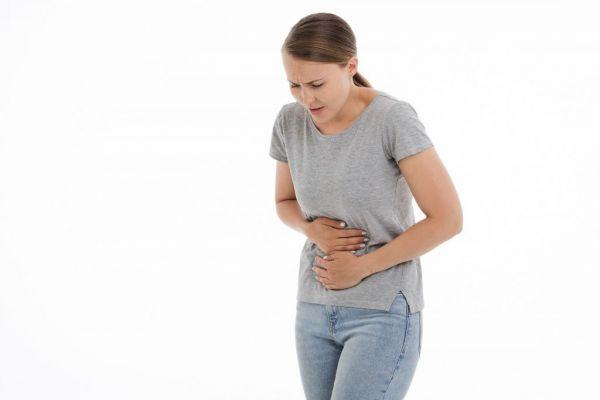Virtually everyone, at least once in their life, has experienced a stomachache or just mild discomfort after eating too much, for example. In most cases, these pains and discomforts are caused by stress, anxiety, nervousness, gas or by some food that was ingested in excess or that simply did not go down very well. These discomforts usually pass quickly, but the big problem is that, when some discomforts are constant, they can be symptoms of some diseases that require more attention and medical treatment, but unfortunately few people pay attention to this.
There are numerous diseases that attack the digestive system. All can be diagnosed only through tests – endoscopy is the most common. Endoscopy means looking inside a patient's body, but how? It is simple and painless: a flexible and very thin tube with a camera at the end is introduced through the patient's mouth (sedated, thus avoiding any discomfort), so that the digestive system is visualized and an accurate diagnosis is defined.
It is common for some diseases that cause stomach pain to be accompanied by other symptoms as well. Here are some examples of the most common gastrointestinal problems and their symptoms, which most affect people.

Gastroesophageal reflux
Surely you know that burning sensation in your throat or chest: the famous heartburn! It is very likely that it is a symptom of reflux, which is a disease that occurs when the esophageal valve opens more often, when in fact it should open only with the ingestion of some food. By opening more often and staying open, ingested food and stomach acids end up back through the esophagus, thus causing stomach pain and burning.
Some symptoms: regurgitation, chest pain, stomach pain, heartburn, hoarseness, canker sores, sore throat and nausea after eating food.
Possible causes: people who have the habit of ingesting food in excess and then lying down are more likely to have reflux, as lying down with a full stomach makes the sphincter (valve) difficult to close. Ingesting caffeine can also be one of the causes, as it causes the sphincter to relax and therefore causes regurgitation. Eating too quickly, without properly chewing food, can also cause illness.
Treatment: There is the option of having surgery to close the valve, but treatment with medication is the most recommended by doctors. Warning: Many people treat reflux as just a bothersome disease, but know that in the long run, it can be a big risk factor that contributes to esophageal cancer.

Gastritis
Disease consisting of inflammation of the stomach walls and which can be caused by several factors, including a bacterium that acts on the imbalance of gastric PH, called H Pylori. It can be acute or chronic, there is another type that can be caused by psychological issues, such as nervousness, anxiety, etc.: nervous gastritis.
Some symptoms: severe stomach pain, usually in the form of twinges, poor digestion or a feeling of "ball" in the stomach, heartburn, frequent burping, malaise, early satiety and headaches.
Possible causes: infection with the H Pylori bacteria, continuous use of anti-inflammatory drugs and acetylsalicylic acid, smoking and excessive consumption of citrus, fatty foods and alcoholic beverages.
Treatment: in addition to medication, doctors recommend that the patient adopt a lighter and more regulated diet.

Pancreatitis
Divided into acute and chronic pancreatitis, the disease consists of inflammation of the pancreas. Acute pancreatitis is caused when gallstones form and block the channels of the pancreas, inflaming its tissues, while chronic pancreatitis atrophies and stiffens the channels and organ tissue.
Some symptoms: very strong stomach pain is the main symptom of the disease. Among others: abdominal pain that can radiate to the back, vomiting, fever and nausea.
Possible causes: The disease is mainly caused by excessive consumption of alcoholic beverages, in addition to gallstones.
Treatment: Unfortunately, in most cases pancreatitis is diagnosed when the disease is already in an advanced stage. Treatment is with medication.

Food intolerance
Disease caused by the lack of some enzymes that are responsible for the digestion of some elements of the ingested food. It is a common disease, which causes great difficulty in digestion and can be acquired throughout life.
Some symptoms: stomach pain, gas, diarrhea and vomiting.
Possible causes: deficiency or absence of a specific digestive enzyme. In some cases, the disease arises because of some medications, when there is some anatomical change, impairment of glands that act in digestion and even may have a genetic origin.
Treatment: It is very important to consult a doctor, as food tolerance is sometimes confused with food allergy. The treatment consists of medications and also the restriction of foods that provoke the reactions of the disease.

bowel cancer
Also called colon and rectal cancer, it is a tumor located at the lower end of the digestive tract. This disease can be prevented if the individual undergoes examinations frequently, as in most cases, this type of cancer is developed from benign lesions – called polyps – that grow on the intestinal wall.
Some symptoms: presence of blood in the stool, diarrhea, constipation, stomach pain, abdominal discomfort, anemia, weakness, weight loss without cause and very long or thin stools.
Possible causes: In addition to genetic factors, diseases such as Crohn's and ulcerative colitis increase the risk of this type of cancer, as well as chronic inflammatory bowel diseases.
Treatment: The disease can be treated with surgery and medication. Pay attention to the signs your body gives and see a doctor if you experience any of the symptoms! Regularly taking the exam called colonoscopy is indicated for people over 50 years old or who are part of the risk group.

Can stomach pain be caused by emotional problems?
Yea! Our body reacts in different ways to everything we experience. When we are stressed, our muscles tense, causing specific pain, and therefore, the tension changes the heart rate, which increases the level of cortisol in the blood. When the organ in question is the stomach, it is worth emphasizing that there is a connection between the brain and the digestive system, in which both exchange signals. When we feel emotions such as euphoria, anxiety, fear, anger, sadness or nervousness, our brain sends signals to the stomach and intestine, which proves that the intestinal tract is sensitive to our emotional. Who never felt a stomachache when they got nervous or felt sick in a moment of anxiety?!
You may also like
- Pains x Emotions
- tea for anxiety
- 5 Teas That Can Cure Stomach Ache
If you went to the doctor complaining of stomach pain, underwent tests and nothing was found, look for a psychologist and/or a psychiatrist and seek to treat your emotional issues, as factors such as anxiety, anger, nervousness, sorrows, among many others can change their physical health and decrease their quality of life.
Treatment for diseases of the digestive tract caused by emotional problems is based on medications, such as antacids, and restriction of some types of food (even so, it is necessary to go to a specialist).
When to see a doctor?
If you often experience stomach pain, that's already a big reason to look for a specialist, but watch out for the following symptoms:
– Weight loss for no apparent reason;
– Frequent vomiting;
– Age over 40 years;
– Anemia;
– Palpable lumps in the stomach region;
- Blood in stool or vomit
Just as an upset stomach can be nothing, it can be a sign of an illness that requires specific treatment. Keep in mind that any untreated illness can be a risk factor for bigger illnesses! To prevent any future problems, seek a doctor and have regular exams.

























